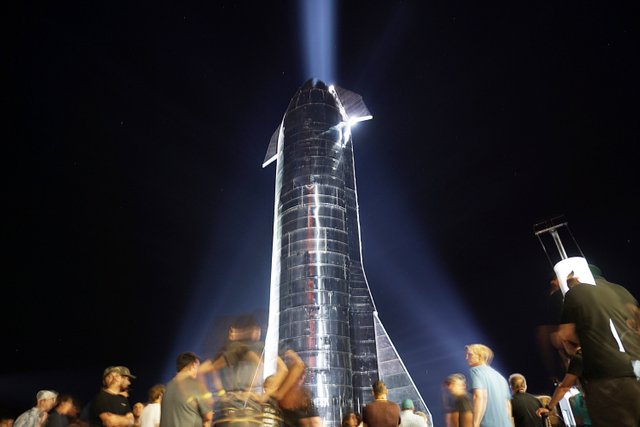Elon Musk Launches Space Taxis to Mars

With the advent of space travel, the prospect of interplanetary habitation has been on the rise. Imagine growing a rose in the sands of the red planet.
Elon Musk had envisaged this–exploration of Mars–but not just as passing astronauts. It's his vision of habitation of the red planet.
It is this vision that set up mechanisms that would lead to the launching of NASA astronauts from launchpads in Florida into outer space.
This would be the first time a profit-centred company would take astronauts into the galaxy.
This accomplishment is an effort to make space marketable.
For SpaceX, Elon Musk's company, this would also crown its failures and near-liquidation.
Imagine taking a leisurely stroll on the red sands of Mars while its two moons bathe you in their radiance.
Such is Musk's plan–build cities on Mars and live there.
In 2016, at a meeting in Mexico, he had expressly stated, "What I really want is to make Mars seem possible, make it seem as though its something that can do in our lifetimes and you can go."
Musk has been seen by many to be a new "voice" in the world of space exploration.
For the Tesla co-founder and CEO of SpaceX, having life on Mars is the ultimate goal.
He had already made his fortune in his early thirties from the sale of Zip2 and Paypal years ago.
He had carried out launces with G. Scott Hubbard, a NASA Mars "chief".
He'd started SpaceX a year later, the company he would use to actualize his dream.
SpaceX has one major guiding goal–making human beings multi-planetary.
A utopian ambition, some might argue. But for Musk, the dream is almost within reach.
NASA had in the past been conservative –keeping itself at the helm of affairs while private companies build what they need and provide the services.
Following the tragic shuttle accident that occurred in 1986(Challenger) and 2003(Columbia), the space company had a rethink on its stand about incorporating private companies.
In 2005, NASA carried out a pilot project that aided private companies to build space crafts to bring cargo into space.
Initial funding of SpaceX had met many setbacks with three failed launches, NASA didn't give up on SpaceX and today, it is reaping the benefits.
NASA had funded private companies to the tune of about $6 billion by 2010, with SpaceX and Boeing reaping the most.
The funding has enabled the companies to launch people into space.
NASA still hopes to give extra funding of $2.5 billion for the purchase of 48 positions to the space station in 12 flights.
SpaceX enjoys more advantages over other space companies as it starts from scratch, building the parts it needs locally and reusing space shuttles.
Musk, even with all his eccentricities, remains the brain behind most of the successes of the company. And he is hopeful that one day his rose would be planted in the red soil of Mars.
https://www.dailysabah.com/world/americas/elon-musk-launches-space-taxis-to-mars